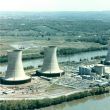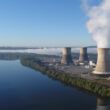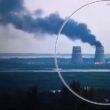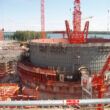Criticism is not enough
By Dalia el-Akkad, February 22, 2013
In the wake of the 2011 revolution, the Egyptian public is extremely interested in politics — nothing can compete when it comes to winning people's attention. Newspapers and magazines are filled with political news and analysis, leaving little space for coverage of scientific and nuclear issues. This situation is exacerbated among new, independent newspapers because independent firms that print newspapers are not available: Independent papers must print their editions through state newspapers such as Al-Ahram, Al-Gomhuria, and Al-Akhbarelyom, which control when an independent paper is printed, how it is distributed, how many pages it contains, and even how many pages appear in color. Independent editors-in-chief, facing constraints of this kind, must make choices about what topics to cover, and they usually favor politics over science. At the moment, interest in nuclear issues is especially low because Egypt's on-again, off-again nuclear energy program is once again delayed.
Lack of space in the newspaper is one of several major problems facing Egypt's science reporters. Another is that the government is insufficiently transparent and officials are often unwilling to provide information. But independent newspapers themselves are not free from blame: Their general editorial practice is to criticize the government without proposing solutions to the problems they identify. A good example is the country's shortage of gasoline, diesel, and butane. Independent newspapers have mainly limited their coverage of this story to reports from crowded gas stations and have not interviewed scientists or other experts to learn how the situation might be remedied.
Journalists play a very significant role in national decisions such as whether to pursue nuclear energy. Raising public awareness of the issues involved, from future electricity demand to nuclear safety, is an indispensable journalistic service. And here again, Egyptian journalists could do better. Newspapers have questioned a July 2012 report by the Ministry of Electricity and Energy stating that the country should pursue nuclear power to help meet future demand for an extra 300 megawatts of electricity annually, but haven't suggested how Egypt's electricity needs can be met if not through nuclear power. And regarding the proposed nuclear power facility at El-Dabaa, the public deserves dedicated reporting on whether El-Dabaa is an appropriate site for such a facility, rather than just coverage of protests against the plant. (Attention should also be paid to El-Nagila, a town that has been mentioned as the possible site of future reactors.)
At the same time, people who live near El-Dabaa deserve more from the government. It is residents who will suffer if a nuclear facility suffers an accident. Therefore, the government should embark on a transparent process regarding the siting of nuclear power facilities, bringing in scientists, environmental groups, local residents, and journalists. In this way, both the government and the media could fulfill their responsibilities to the public.
Topics: Nuclear Energy
Share: [addthis tool="addthis_inline_share_toolbox"]














